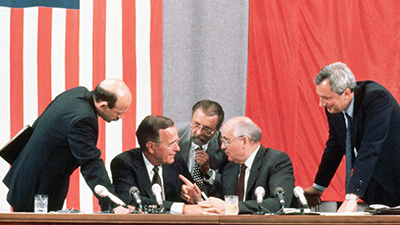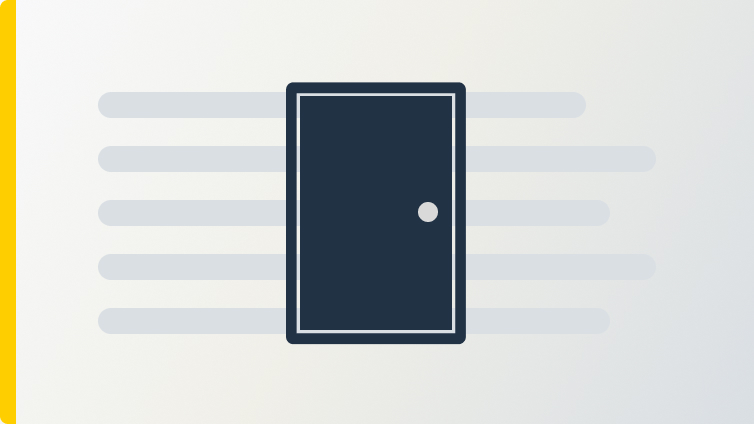The End of the Cold War
Teacher Resources
Driving Question: Was there a “winner” in the Cold War?
The collapse of the Soviet Union in 1991 left the United States as the world’s sole remaining superpower—reshaping the global economic and political landscape in the process. For some, this changed landscape resulted in increased freedom; for others, particularly in the former Soviet republics, it resulted in economic uncertainty and gave rise to ethnic violence.
Learning Objectives
- Explain the causes of the end of the Cold War.
- Create and support arguments with historical evidence to evaluate the interconnection between decolonization and the Cold War in two regions of the world.
Vocab Terms:
- autonomy
- buffer
- communism
- economic stagnation
- ethnic
- repression
Opener: The End of the Cold War
Use evidence to assess the most effective means of achieving independence and how these movements relate to the world today.
Who Is “Winning” The Cold War?
To teach this lesson step, refer to page 3 of the Lesson 8.8 Teaching Guide.
Want to see a Gamified “Who is Winning the Cold War?” Read this thread on the Community Forum.
Was the Cold War a conflict that could be “won”? And if so, who was “winning” at various points in the conflict’s history?
Collapse of the Soviet Union
To teach this lesson step, refer to page 6 of the Lesson 8.8 Teaching Guide.
How did one of the biggest and most powerful nations on earth collapse? And how did that collapse help end the Cold War?
-
Guiding Questions
-
Before you read
Preview the questions below, and then skim the article. Be sure to look at the section headings and any images.
While you read
Look for answers to these questions:
- How does this author argue that the Soviet empire was different from other European empires?
- How does the author say that the Soviet model of empire led to its collapse?
- What was Soviet control like in Eastern Europe?
- Who opened up Soviet society? How did they do this?
After you read
Respond to the following questions:
- Using evidence from this article, explain the causes of the end of the Cold War.
- This article mentions that people debate whether the Soviet Union had an informal empire. How was Soviet control of Eastern Europe different from the informal colonialism of the United States in the Caribbean? How was it similar?
Closer: The End of the Cold War
To teach this lesson step, refer to page 7 of the Lesson 8.8 Teaching Guide.
The Cold War ended in 1991…right? Find answers to this Cold War question by reading this blog from our OER Project historians.
You’ve learned a lot in this unit about the Cold War and decolonization—how much has your thinking changed since the beginning of the unit?




